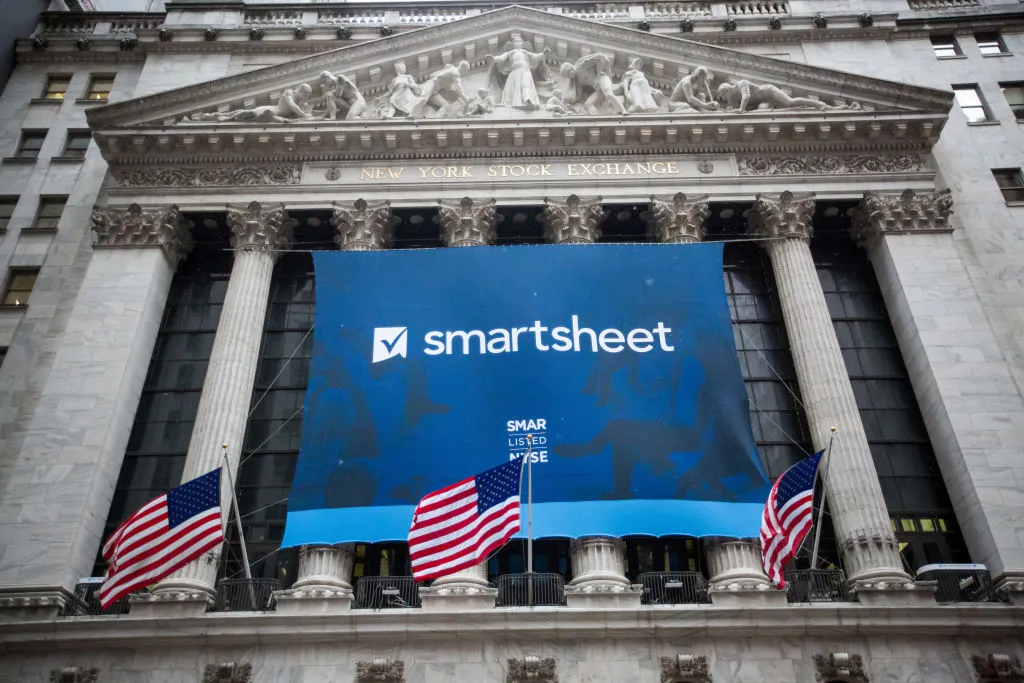A major leader in the workplace collaboration software market, Smartsheet is currently managing a pivotal point in its business plan. The company, which is valued at $6.6 billion, has lately hired investment bankers to investigate bids of acquisition from private equity groups. This calculated action, which reflects broader market dynamics impacting the technology industry, coincides with investors’ growing interest. The choice made by Smartsheet to collaborate with the esteemed investment banking group Qatalyst Partners highlights the gravity of its considerations as it decides whether to move forward with a sale or maintain its independence.
The backdrop to Smartsheet’s exploration of acquisition offers is a shifting landscape in the private equity market. After a period of subdued activity in 2023, characterized by high interest rates that made financing leveraged buyouts more challenging, there has been a noticeable uptick in private equity transactions in the first half of the year. Deal volumes in the private equity space jumped by approximately 41%, driven by a resurgence in take-private deals. This resurgence reflects a renewed appetite among investors for opportunities in sectors such as technology and services, where Smartsheet operates prominently.
Smartsheet’s software platform, designed to manage, track, and automate workflows, distinguishes itself by offering a more comprehensive solution compared to traditional tools like Microsoft Excel. The platform’s appeal to large corporate clients with complex operational needs is evidenced by its roster of notable customers, including Pfizer, Cisco, and American Airlines. Serving 85% of Fortune 500 companies, Smartsheet has established itself as a key player in the enterprise software landscape. This extensive client base and the company’s proven ability to handle complex operations make it a highly attractive target for private equity firms looking for high-growth opportunities.
Despite its impressive growth trajectory, Smartsheet has been prioritizing expansion over immediate profitability. For the fiscal year ending January 31, the company reported revenue of $904 million, up from $714 million the previous year. Although it achieved a reduction in pre-tax losses from $213 million to $96 million, the company continues to invest heavily in its growth initiatives. As of the end of April, Smartsheet held $334 million in cash reserves and carried no debt, demonstrating a solid financial foundation that enhances its attractiveness to potential buyers.
The current environment for leveraged buyouts poses significant challenges for potential acquirers. Traditional banks have become increasingly cautious about lending to companies with high cash flow usage, reflecting a broader trend of risk aversion in the banking sector. This caution complicates the financing of leveraged buyouts, where financing often relies on a company’s cash flow. In response, some private equity firms have turned to alternative financing sources, known as shadow banks. These investment firms operate outside the traditional banking sector and offer more flexible loan structures, often based on metrics like annual recurring revenue rather than cash flow alone. This approach allows for greater flexibility in financing but also introduces different risks.
The use of alternative financing methods, such as annual recurring revenue loans, highlights the evolving landscape of private equity and the strategies employed to manage risks associated with leveraged buyouts. For instance, Vista Equity, a prominent private equity firm, is reportedly in discussions to relinquish control of its educational software platform, Pluralsight, to its lenders. This situation arose after a problematic annual recurring revenue loan linked to Pluralsight’s $3.9 billion acquisition. The difficulties faced by Vista Equity underscore the risks associated with alternative financing and the potential financial strain if such loans underperform.
As Smartsheet evaluates its strategic options, the involvement of Qatalyst Partners signals a thorough assessment of the company’s future. The decision to engage with investment bankers and explore acquisition offers reflects the broader trends in the technology sector and the challenges of sustaining growth and profitability in a fluctuating market. Smartsheet’s ability to navigate this complex environment and determine its path forward will be of significant interest to industry analysts and investors. The outcome of this strategic review will not only impact Smartsheet’s future but also provide valuable insights into the dynamics of high-value tech acquisitions and the financial strategies employed by both buyers and sellers in today’s market.
The potential acquisition of Smartsheet also highlights the broader trends within the technology and software sectors. Companies like Smartsheet, which offer comprehensive and scalable solutions for managing workflows, are increasingly sought after by private equity firms and other investors. This trend reflects the growing importance of technology in driving operational efficiency and productivity in large organizations. As businesses continue to seek ways to streamline their operations and improve their performance, software solutions that address complex operational needs will remain highly valuable.
In light of the rising private equity activity and changing financing tactics, Smartsheet’s investigation of acquisition offers highlights the challenges associated with executing high-value deals in the current market. An attractive target for investors is the company because of its strong financial standing, notable market presence, and potential for expansion. The conclusion of this strategic assessment will not only determine Smartsheet’s course but also provide insightful information about the changing tech acquisition landscape and risk management techniques in a dynamic setting. This is because the company is considering its alternatives and assessing its future.
If you like the article please follow on THE UBJ.
